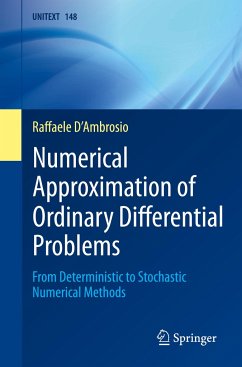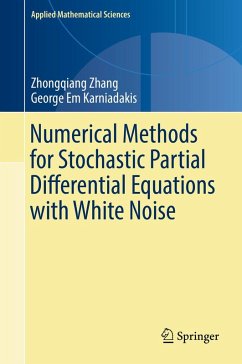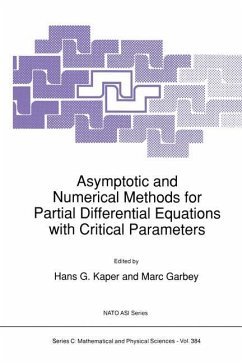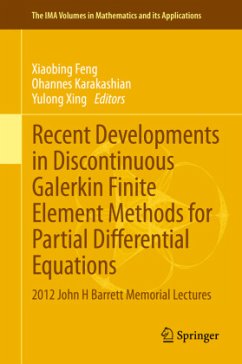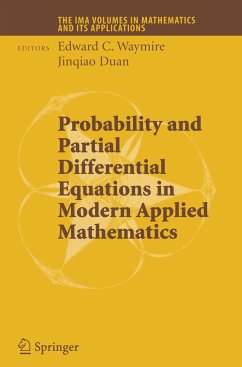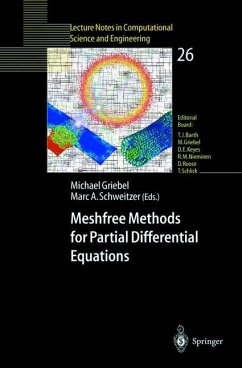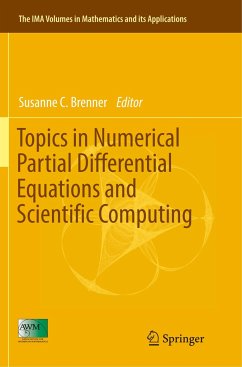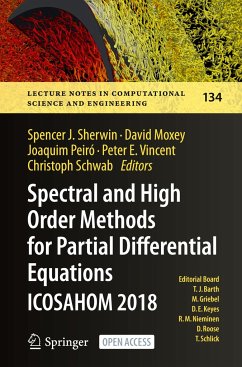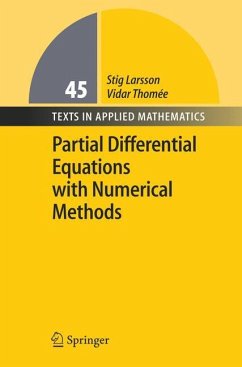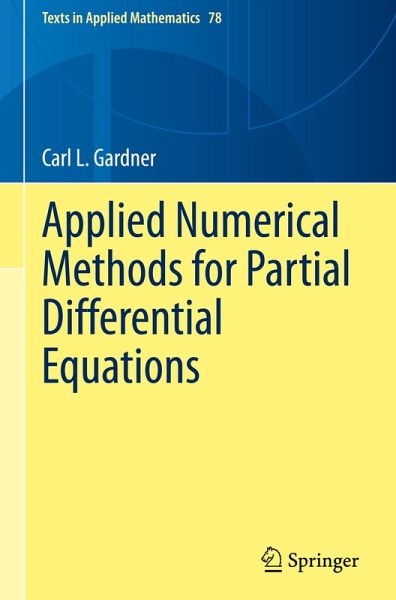
Applied Numerical Methods for Partial Differential Equations

PAYBACK Punkte
23 °P sammeln!
The aim of this book is to quickly elevate students to a proficiency level where they can solve linear and nonlinear partial differential equations using state-of-the-art numerical methods. It covers numerous topics typically absent in introductory texts on ODEs and PDEs, including:Computing solutions to chaotic dynamical systems with TRBDF2Simulating the nonlinear diffusion equation with TRBDF2Applying Newton's method and GMRES to the nonlinear Laplace equationAnalyzing gas dynamics with WENO3 (1D Riemann problems and 2D supersonic jets)Modeling the drift-diffusion equations with TRBDF2 and P...
The aim of this book is to quickly elevate students to a proficiency level where they can solve linear and nonlinear partial differential equations using state-of-the-art numerical methods. It covers numerous topics typically absent in introductory texts on ODEs and PDEs, including:
Computing solutions to chaotic dynamical systems with TRBDF2Simulating the nonlinear diffusion equation with TRBDF2Applying Newton's method and GMRES to the nonlinear Laplace equationAnalyzing gas dynamics with WENO3 (1D Riemann problems and 2D supersonic jets)Modeling the drift-diffusion equations with TRBDF2 and PCGSolving the classical hydrodynamic model (electro-gas dynamics) with WENO3 and TRBDF2
The book features 34 original MATLAB programs illustrating each numerical method and includes 93 problems that confirm results discussed in the text and explore new directions. Additionally, it suggests eight semester-long projects.
This comprehensive text can serve as the basisfor a one-semester graduate course on the numerical solution of partial differential equations, or, with some advanced material omitted, for a one-semester junior/senior or graduate course on the numerical solution of ordinary and partial differential equations. The topics and programs will be of interest to applied mathematicians, engineers, physicists, biologists, chemists, and more.
Computing solutions to chaotic dynamical systems with TRBDF2Simulating the nonlinear diffusion equation with TRBDF2Applying Newton's method and GMRES to the nonlinear Laplace equationAnalyzing gas dynamics with WENO3 (1D Riemann problems and 2D supersonic jets)Modeling the drift-diffusion equations with TRBDF2 and PCGSolving the classical hydrodynamic model (electro-gas dynamics) with WENO3 and TRBDF2
The book features 34 original MATLAB programs illustrating each numerical method and includes 93 problems that confirm results discussed in the text and explore new directions. Additionally, it suggests eight semester-long projects.
This comprehensive text can serve as the basisfor a one-semester graduate course on the numerical solution of partial differential equations, or, with some advanced material omitted, for a one-semester junior/senior or graduate course on the numerical solution of ordinary and partial differential equations. The topics and programs will be of interest to applied mathematicians, engineers, physicists, biologists, chemists, and more.



